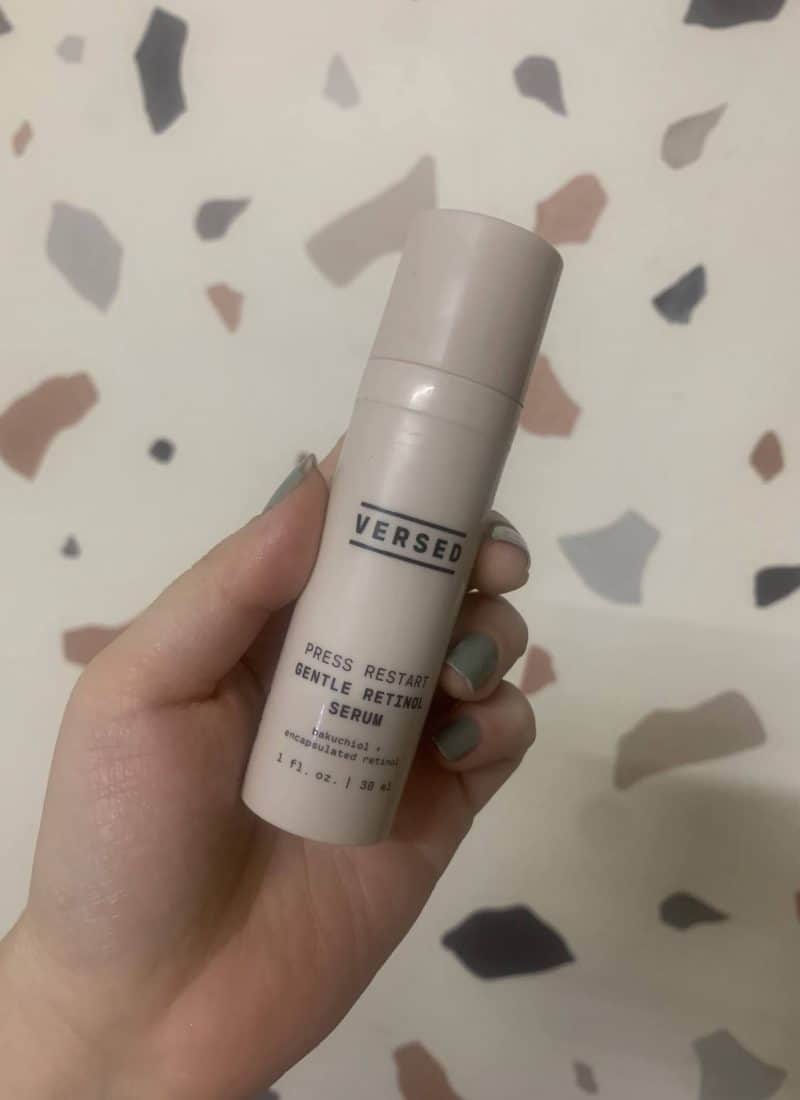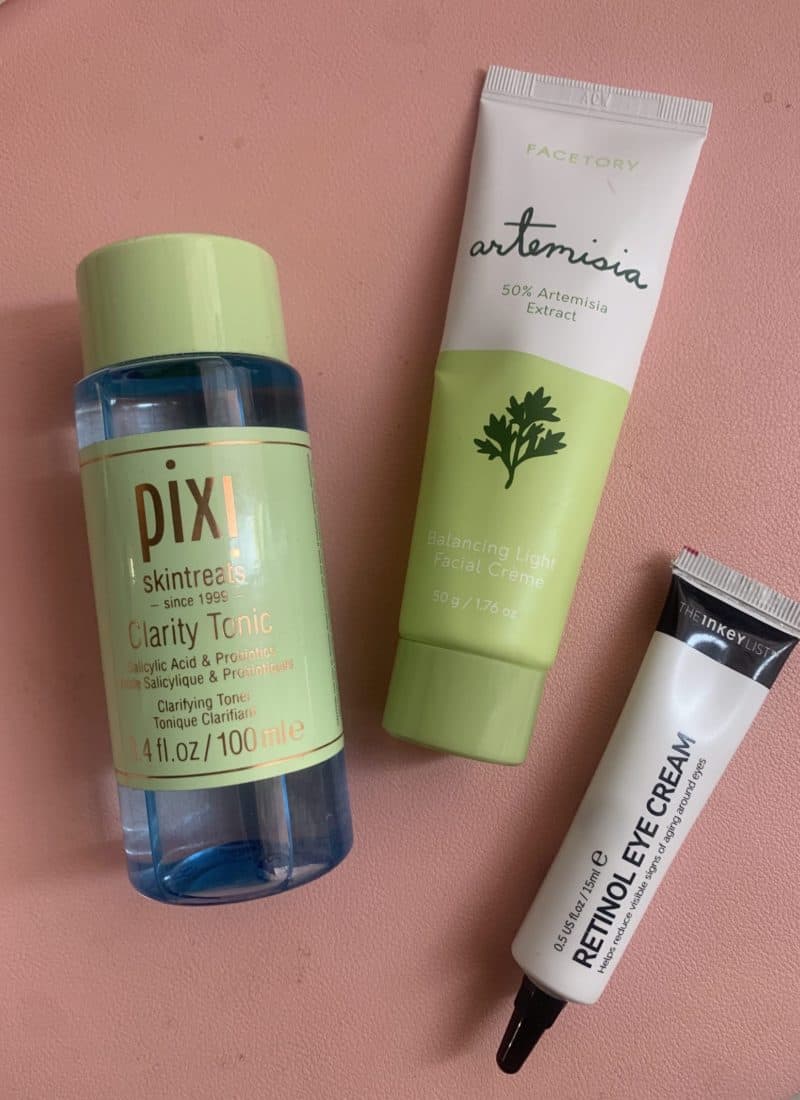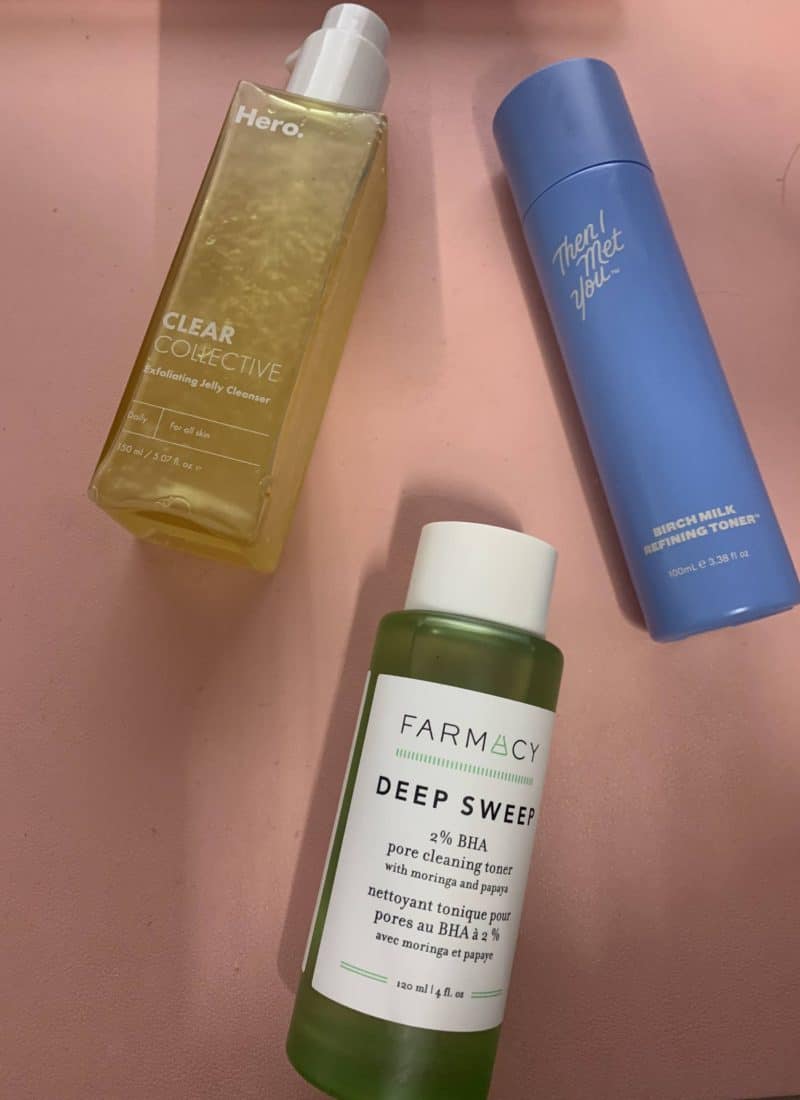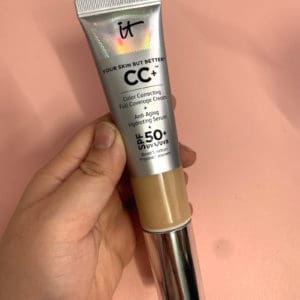There are a LOT of “buzzword” ingredients out there in the industry. It’s easy to get overwhelmed trying to figure out what skincare ingredients you can and can’t mix. One common question I get often is, “can you use niacinamide with vitamin c?” These are two very popular skincare ingredients, but there’s a backstory here. Today I’ll be breaking down what these ingredients are, where the myths come from, and what the truth is. Keep reading to find out if you can use niacinamide with vitamin c.
What is Niacinamide?
Niacinamide was the skincare ingredient of 2020 – and for good reason. It helps to strengthen your skin barrier, balance oil production, and even skin tone. You can find niacinamide in many popular products (cleansers, toners, serums, moisturizers, sunscreens, and more). Niacinamide gets along well with lots of ingredients. I love using niacinamide alongside retinoids to help keep my skin barrier strong and avoid dryness/irritation. Everyone has been incorporating niacinamide into their routine because it’s such a multi-functional ingredient!
What is Vitamin C?
Vitamin C is one of the most popular skincare ingredients out there. In fact, there are lots of different types of vitamin c ingredients as well. It’s an amazing antioxidant that helps to protect the skin against environmental damage like free radicals. It can also be used to treat hyperpigmentation and sun damage. Vitamin c is a trickier ingredient because it’s difficult to stabilize. I personally don’t recommend mixing vitamin c with retinoids or acids to avoid potential irritation. However, both vitamin c and niacinamide can help with uneven skin tone. So, let’s talk about if you can use these two powerhouse ingredients together.
Skincare Myth: You can’t use niacinamide with vitamin c
So there’s a common misconception that niacinamide and vitamin c can’t be used together. Let’s talk about where this myth comes from. There are a few very old studies that showed combining L-Ascorbic Acid (a form of vitamin c) and niacinamide could lead to hydrolysis – the creation of niacin. This creation of niacin (nicotinic acid) can lead to redness and flushing in the skin. On top of that, since vitamin c is tricky to work with, many people steer clear of combining it with other ingredients. Because of these myths, many people are wary of using niacinamide with vitamin c.
Here are the facts:
So that’s where the myth comes from. But what’s really the truth? It’s important to note that those studies were done at very high temperatures with unstable forms of L-Ascorbic Acid and niacinamide. On top of that, more recent studies have shown that the hydrolysis of niacinamide (creation of niacin) only happens over long periods of extreme heat. Niacinamide is an incredibly stable ingredient, so it takes a lot to get niacin to form. Even in studies with high heat over extended periods, only a small percentage of niacinamide gets converted. So what does this mean? Everyday use of niacinamide and L-Ascorbic Acid will likely have no issues when combined. It’s also important to note that these studies only talked about the (notoriously unstable) L-Ascorbic Acid. Other types of vitamin c should be perfectly fine when used alongside niacinamide.
Can you use niacinamide with vitamin c?
With all the facts laid out, my take is that yes, you can! Niacinamide and vitamin c actually complement each other very well. They can work together to treat hyperpigmentation and uneven skin tone while keeping your skin healthy and strong. In fact, many brands are starting to formulate niacinamide and vitamin c together – like in the Summer Fridays CC Me serum. The combo can be very effective when used together. If you have very sensitive skin, I’d recommend trying it out to see if you experience any flushing. If not, you should be in the clear!
And there you have it! If you’ve ever wondered if you can use these two ingredients together, there’s your answer. I personally use this combination every morning! I use my Drmtlgy CE + F Serum and Stratia Liquid Gold to treat and prevent hyperpigmentation while keeping my skin barrier strong. Don’t forget to do your research before believing popular skincare myths!
Certain product links are affiliate links. I do earn a small commission if you purchase from these links (with no additional cost to you), which supports me and my blog. Feel free to check out all of my affiliate/referral links or shop my favorites if you decide to shop. Thank you for your support!
~ Annie



